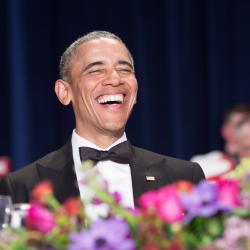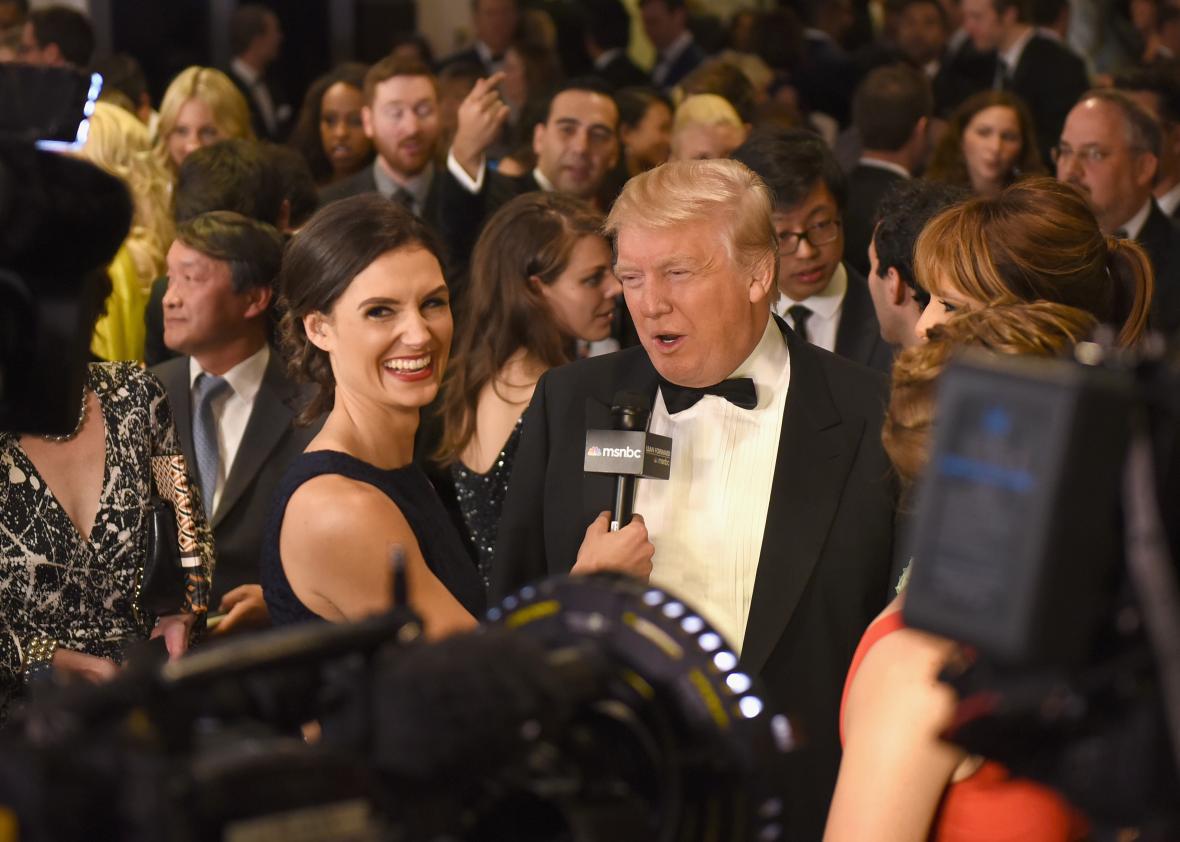President Trump’s war on the media is disturbing on multiple levels. But any fretting that accompanied his decision to spurn the White House Correspondents’ Association Dinner, as Trump announced this weekend, is misplaced. If anything, Trump did his foes in the press corps a favor.
Started in 1921 as a chummy gathering of about 50 people, the annual charity dinner has evolved into a falsely chummy, nationally televised spectacle in which the bigwigs of political media dine lavishly with the president of the United Stated, laugh at his jokes, and hire celebrities to rib him back. It long ago grew unseemly—a gaudy emblem of the symbiotic relationship between Washington’s political and journalistic establishments. But the money it raised for journalism scholarships served as handy cover for the dinner’s true purpose, which was to pad the egos of the journalists and media organizations involved. Over time it became a news event in itself, a star-studded affair whose highlights and laugh lines would punctuate the next day’s newscasts.
That it took a president as openly hostile to the press as Trump to call into question the appropriateness of this arrangement should embarrass the media organizations that sponsored it. That it was Trump himself who pulled out should embarrass them further. (To be fair, at least three outlets—the New Yorker, Vanity Fair, and Bloomberg—had canceled their annual after-parties prior to Trump’s announcement. And the New York Times pulled out years ago. )
The good news is that the embarrassment can stop here, for all involved. Trump’s unilateral withdrawal gives the White House Correspondents’ Association a chance to break permanently with a corrosive tradition without appearing to discriminate against any particular politician or party.
The dinner should go on, but Trump should not be invited in the future. Neither should the next president, or any president after that. The media can have their own shindig, and raise funds for their own causes, without supplicating themselves to a guest of honor on whom they’re supposed to be reporting without fear or favor. There has never been a better time for the news business to purge itself of its worst habits.

Nicholas Kamm/AFP/Getty Images
The White House Correspondents’ Association, according the history section of its website, formed in 1914 to give journalists a unified front from which to codify their conduct and negotiate the terms of their access to the administration and its press briefings. That’s a sound basis for such an organization. Individual bargaining between press outlets and the White House would be a race to the ethical bottom.
The dinner has always been a different matter. Just look at what the WHCA’s history page has to say about the inaugural correspondents’ dinner, held in 1921, just two months into the term of the new Republican president, Warren G. Harding (italics mine):
On a social level, the correspondents saw Harding, a newspaper publisher, as one of their own. One of his first acts as president had been throwing a dinner for the correspondents who had covered his campaign in Marion, Ohio. Now, it was time to reciprocate.
A spirit of reciprocity has its place in civil society, but not in the relationship between the president and the press. To whatever extent the White House Correspondents’ Association and its members were depending on each president’s good will to lend his star power to their fundraising event, they were implicitly beholden to him. To whatever extent each president felt compelled to attend, even in times of war or crisis, it was because he had reason to hope that good will would be somehow repaid.
If the event’s glitz dims in the president’s absence, that’s only as it should be. White House correspondents aren’t heroes, generally speaking, but they do have an important job to do, and schmoozing with celebrities isn’t part of it. And if the cost is a few tens of thousands of dollars in journalism scholarships, well, at least the young men and women who win the remaining money will be aspiring to a profession that places some value on its dignity.
